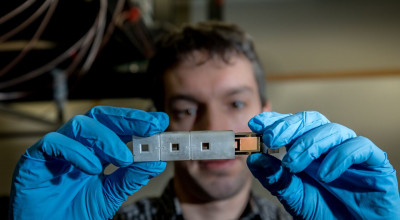
A Georgia Institute of Technology (Georgia Tech) specialist in health informatics has been named to Georgia’s new Task Force on Healthcare Access and Cost. Lt. Governor Geoff Duncan announced the 16 members of the task force, which includes Jon Duke, director of Georgia Tech’s Center for Health Analytics and Informatics, and principal research scientist at the Georgia Tech Research Institute (GTRI).
The group will pinpoint improvements that can be made to tackle the cost and access burdens to healthcare across Georgia. Specifically, the task force will evaluate: 1) price transparency and other free market solutions; 2) data and technology utilization; and 3) employer innovation. Duncan will chair the group, which will hold three meetings before the start of the legislative session in January 2020.
Duke received an M.D. from Harvard Medical School and an M.S. in human-computer interaction from Indiana University. At Georgia Tech, he holds faculty appointments in the Georgia Tech Research Institute and the College of Computing.
“Healthcare is a concern for all Georgians, and I am pleased to participate in this effort led by the lieutenant governor,” Duke said. “Innovations in data analytics and informatics are an important part of the discussion as we move forward in providing healthcare solutions.”
Other members of the task force include:
- Chair, Lt. Governor Geoff Duncan
- Sen. Dean Burke, M.D., vice chair of the Senate Health and Human Services Committee
- Sen. Gloria Butler, member of the Senate Health and Human Services Committee
- Sen. Jack Hill, chair of the Senate Appropriations Committee
- Sen. Kay Kirkpatrick, M.D., chair of the Senate Ethics Committee
- Sen. Ben Watson, M.D., chair of the Senate Health and Human Services Committee
- Ryan Loke, special projects coordinator, Office of the Governor
- Barbara Barrett, director of Human Resources and Benefits, Langdale Industries Inc.
- Lance Boles, Pharm D., Hartwell Drugs
- Gregory Esper, M.D., MBA, associate chief medical officer, Emory Health Care
- Clark Howard, Consumer Advocate
- Toni P. Miles, M.D., Ph.D., professor of Epidemiology and Biostatistics, University of Georgia
- Debra Stokes, executive director, Georgia Rural Health Innovation Center at Mercer University
- Carie Summers, CFO and senior vice president, Georgia Hospital Association
- Jesse Weathington, Georgia Director, Total Spectrum
Duke leads Georgia Tech’s initiative to improve human health through better capture, interpretation, and applications of data. The effort incorporates a spectrum of expertise including machine learning, natural language processing, high-performance computing, sensors, cybersecurity, and health data interoperability.
Before joining Georgia Tech, Duke was senior scientist and director of health analytics and advanced text mining at the Regenstrief Center for Biomedical Informatics in Indianapolis.





